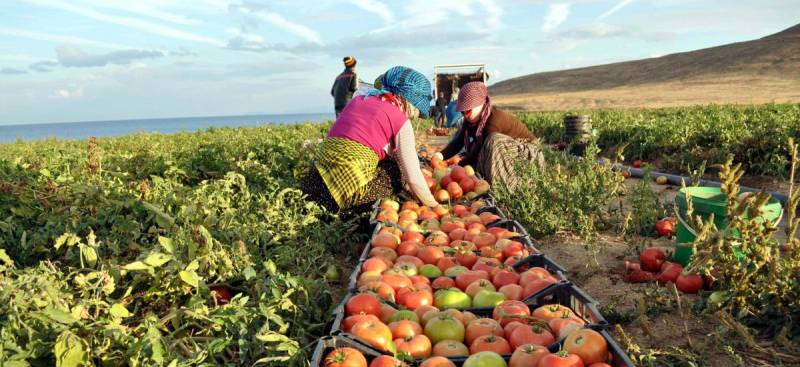In early June, I came across social media posts by the Workers Health and Safety Watch (İŞİG) reporting a traffic accident. The post shared news on the death of an agricultural worker and included images of a small old pick-up truck:
“39 people were traveling in this vehicle…
Recep Arslan…
16 years old…
Was killed when this truck carrying agricultural workers crashed in Bismil, Diyarbakır…
34 workers were injured, 4 of them critical…
Recep’s photograph was unavailable…”
Recep came from a humble background, and was one of many who leave no photographs behind. When agricultural workers began their seasonal migration in April, workplace accidents (or murders, one could say) began as well. All summer, İŞİG shared news of accidents and crimes that agricultural workers suffered. Some made it into the news cycle, others did not. These people neither had photographs, nor any value in Turkey.
It is estimated that agricultural workers and their children (including unregistered workers) make up 1 million of Turkey’s population. In spite of this, there are no laws dedicated to protecting these workers. They are deprived of access to healthcare and education. They have no social safety nets. They are made to work over 12 hours a day. Their wages are low. They are not provided with adequate housing in the places they work. They have no say in their working conditions.
The Turkish Employment Agency has documented how workers are dependent on intermediaries called “sergeants.” They have no right to unionize. In addition to these difficult living conditions, they are subjected to racist, divisive treatment in the places they go for work, often migrating from southeastern Turkey to northern and western regions.
Just last month, 19-year-old migrant worker Şirin Tosun was shot and killed in the northwestern province of Sakarya when a group confronted him for “speaking Kurdish too loudly.”
Many agricultural workers are children being exploited for their labour. These children are not only kept from school, but also made to work under difficult conditions that upend their lives. Some of them pass away without leaving any photographs behind.
The Development Workshop is a non-profit that does work on child labour and agricultural workers. I highly recommend their most recent publication, “Poverty, Migration and Child Labour: The Socio-Economic Profile of Seasonal Agricultural Worker Households,”which analyses the demographic and economic profiles, legal standing, social resources, and gendered perceptions of families that become agricultural labourers. The report says:
“The research findings show that Turkish families work in seasonal agricultural jobs mostly because of the lack of other sources of regular income. For the Syrian families, agricultural jobs are the most easily accessible. Even though Turkish and Syrian families have different motivations, child labour practices are common in both groups since the inclusion of children in agricultural work becomes an “indispensable” strategy to earn a living. Most of these families lack an alternative source of income besides agricultural work.
For Turkish families this is due to the lower educational attainments and lack of skills suitable to find employment with regular income. In addition to low education and skill levels, Syrian families also face other barriers such as legal status and language problems. Even though the social assistance can be a source of income for both Turkish and Syrian households, these support programs do not provide regular income in the long run.”
The report also includes the stories of children who work as seasonal labourers, as well as stories of families from Turkey and Syria. They reveal that many of the families that participate in agricultural labour are impoverished and unable to escape the cycle of poverty. In a way, seasonal agricultural labour has become their only means of survival. Childhood has become synonymous with caring after younger siblings in the family tent, and a few years later having to join the adults working in the fields…
But these stories are falling on deaf ears. Despite the terrible conditions in which these people live and the horrific accidents they suffer, for years the government has not taken a single step to provide them with living wages and inhabitable conditions.
One cannot help but wonder, what would happen if agricultural workers stopped harvesting Turkish products? What if potatoes rotted in the soil, tomatoes remained in the fields, hazelnuts stayed on the trees…
As I finish writing, I come across another story shared by İŞİG:
“Mahmoud Almourad…
45-year-old Syrian worker…
Killed in an collision between a bus and a tractor carrying workers to the city of Aydın…”
The news is accompanied with images of the accident. It seems that Mahmoud’s photograph was also unavailable…
